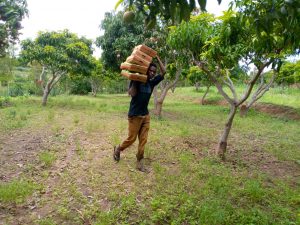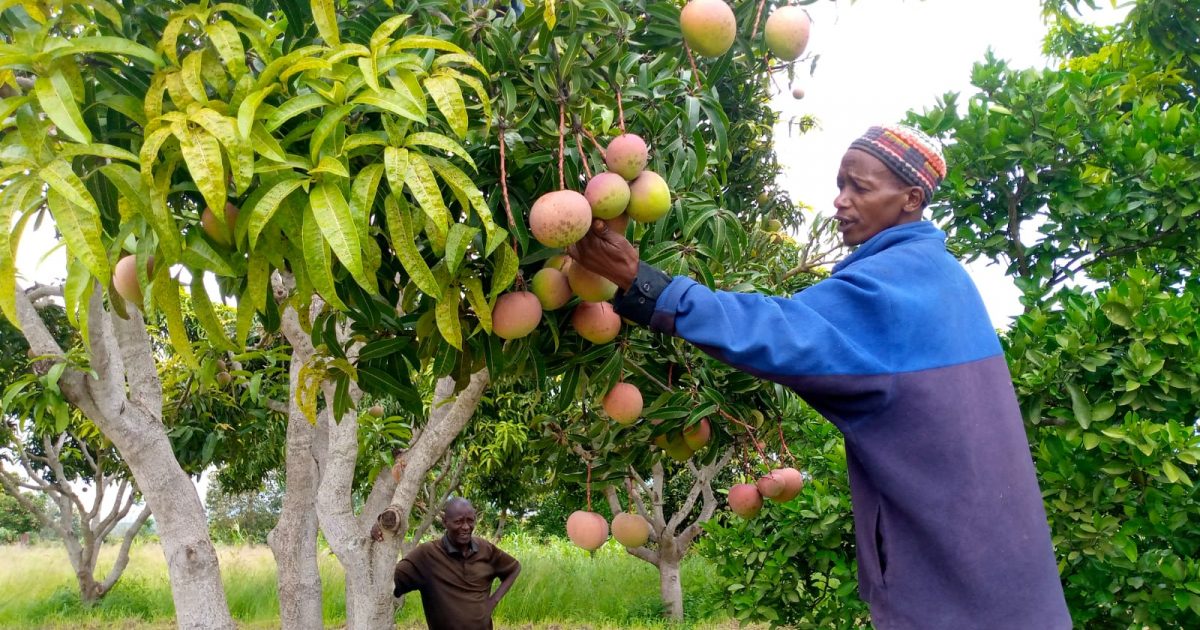It’s the peak mango season in the country and farmers in Mwala Sub County are raking in thousands of shillings from the tropical fruit.
Although the farm price per fruit currently averages at Sh6, a price way below the expectations of many, farmers are still making a killing. During the off-season the fruit goes for between Sh15-20 per piece.

The most commonly grown variety is the apple mango. Others include Tommy, Kent, Ngowe and Haden.
Reuben Muindi, a retired army officer, is one such farmer who ventured into mango farming 21 years ago as part of his retirement plan.
The money he makes from selling mangoes has helped him lead a fairly comfortable life.
“Mango farming has enabled me to fend for my family without straining,” he says.
When we caught up with him at his farm in Makutano, casual labourers were harvesting the mature fruit for sale. The mangoes are carefully harvested when mature and a packaged in small cartons for transportation with each carton carrying about 12 average sized mangoes.
After harvesting Muindi sells his mangoes directly to brokers. “I normally sell my fruits to middle men who collect the fruits from the farm. I find it convenient for me because I do not have to look for the market,” he discloses.
Muindi has close to 100 mature trees of the apple mango variety in his two acre farm. He also has a few trees of the Tommy variety. A mature tree if well-tended could produce up to 1,000 fruits per season.
Most farmers prefer the apple mango because it can thrive in areas which receive little rainfall like Mwala though it also does well in hot and humid areas.
Although, the retiree has no regrets for choosing mango farming, the venture has had its fair share of challenges with low prices and exploitation by brokers topping the list.
“It is the brokers who determine the prices. They end up taking advantage of farmers because the fruit is highly perishable. We would rather sell at throw away prices than let them rot in the farm,” notes Muindi.
He adds that diseases like anthroncose and powdery mildew were also a challenge while the fruit fly pest has been a menace. “We nowadays use traps for the fruit fly and it’s working. It is not a big problem like before,” says Muindi.
In 2013 Kenya imposed a self-ban for exportation of mangoes to the European market due the fruit fly menace. However, the ban was lifted last year following a robust campaign dubbed ‘Komesh Fruit Fly’ that saw Kenya comply with the international standards.
Climate change, according to the retired army officer has also affected the fruit farming. He says in the recent past, rain patterns have become unpredictable and mostly ended up affecting the flowering of the fruits.
“Rain during the flowering season reduces the fruit setting, which is the transition phase from the flower to the development of the fruit,” adds Muindi.
But despite the challenges, the retiree says mango farming could be a lucrative venture. “Mango is a fruit that does well in tropical climate, and if one follows the management practices including pruning, pests and disease control, the fruit can be high yielding with good returns,” he quips.
A few kilometers from Muindi’s farm we find Benedict Mutuku, also a mango farmer.
The farmer however uses a different marketing approach.
When his fellow farmers are selling the fruits to brokers, Mutuku transports his produce to the market fetching a slightly higher price. He also buys from other farmers. “I target local markets and I also transport them to Tanzania rather than relying on the middle men,” he says.
The farmer cum transporter says for him, proper timing of harvesting the mature fruits is very key to curbing post-harvest losses.
“Sometimes the roads are impassible and I experience delays in transportation especially at Likoni ferry and the mangoes end up getting spoilt leading to huge losses,” says Mutuku.
He blames the county government for failing to establish a mango processing plant to reduce the post-harvest losses.
“Mwala Sub County is the fruit basket of Machakos. The county government promised a processing plant but nothing has been done so far and farmers have been left counting losses,” adds Mutuku.
By Roselyne Kavoo and Alex Muthama




